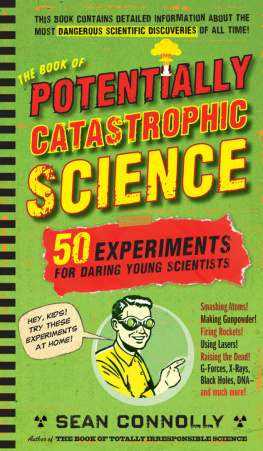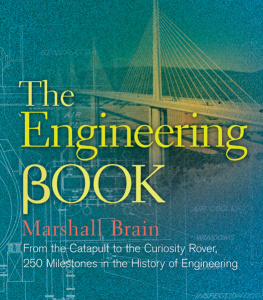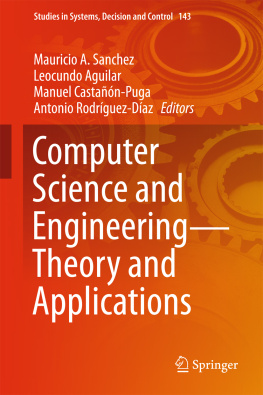The Book Of


Sean Connolly
Workman Publishing New York
To the memory of my parents,
who laid a solid foundation and gave me the tools to help me through life.
A famous song contains the lyrics What a long, strange trip its been. Those words could have described the journey that writing this book has taken, lasting about 2,000 years (okaycovering about 2,000 years) and calling at temples, stadiums, battlefields, and disappearing lakes along the way.
A trip like that needs good guides, and Im indebted to the planners, engineers, and builders whose successes and failures inspired this book. Without studying and learning from their work, Id never have had the material to fill these pages.
On a more practical note, those typed pages would never have become the printed pages you read without the help of my team of experts. They include my agent, Jim Levine of the Levine Greenberg Rostan Literary Agency; and Workman Publishings two Daniels: Daniel Nayeri, Director of Childrens Publishing, and the indefatigable editor Danny Cooper. Special thanks also go out to Galen Smith for the lively and pleasing design, and diligent production editor Beth Levy for her keen eye.
In addition, the following individuals and organizations have provided inspiration or assistance, and sometimes both: Berkshire Film & Video, Nicholas Brakspear, Frank Ciccotti, Christopher Edwards, Gregory Etter, Dr. Sally Heneghan, Gary Hoffman, Kingswood School, Dr. Peter Lydon, M.I.T.s Educational Studies Program, Robert Rauch, Peter Rielly, Jennifer Spohn, and Elizabeth Stell.
Contents
INTRODUCTION
Thats a great tower youve built! Just the right height, pretty arches, and that white marble really shows it off. Just one itty-bitty thingthat lean. It really does tilt, and people are even beginning to call it the Leaning Tower of Pisa.
Oh, that? Dont worry! Its just settling in. Give it a year or two and it will straighten out.
You can imagine this conversation taking place back in the Middle Ages, when work was finally finished on the bell tower of Pisa Cathedral. Centuries have passed, and the tower still leans worryingly. But with better planning, mainly in the engineering department, the famous tower would never have tilted in the first place.
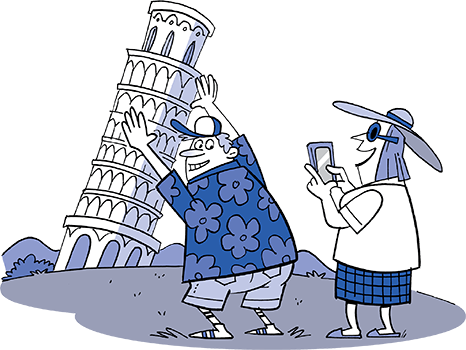
How Bad Is Bad?
Could you really call the Leaning Tower an engineering disaster? You could even argue the oppositethat it put Pisa on the international tourist map. After all, who goes out of their way to see the Upright Tower of Bologna or the Perpendicular Column of Naples? But in the end, theres something a bit... embarrassing... about that tower in Pisa.
Its not the only whoops example that youll get a chance to examine in The Book of Massively Epic Engineering Disasters. How about that open-top electric vehicle, the Sinclair C5, that was launched in the rain on a winter afternoon? Or the Spruce Goose, one of the largest and most expensive planes ever built, which had just one flight and reached an altitude ofwait for it70 feet? Or maybe the Louisiana lake that just drained away like an emptying bathtub because oil engineers drilled through the wrong bit of lake bed?
All of those seem almost comical and harmless, but engineering mistakes can also lead to deadly consequences. Thousands died when a hastily constructed wooden coliseum collapsed nearly 2,000 years ago in Italy. The catastrophic loss of the Titanic in 1912 can be traced to poor engineering as well. Even Bostons deadly Molasses (yes, molasses) Flood of 1919 could have been prevented if engineers had paid more attention to the way liquids behave under enormous pressure.

Asking the Right Questions
In the following pages, youll be able to examine 20 engineering disasters from ancient times right up to the 21st century. Pay attention, because youve been called in to make sure these mistakes dont happen again!
A brief introduction to each episode sets the stage, locking it into a time and place so you can get a feel for what happened when disaster struck. Then you have a chance to look more closely in the section called What Went Wrong? Thats where you get the full story, including the consequencesand costof each engineering mishap.
Armed with that information, you can try to Turn Back the Clock. And thats where the fun really begins. Heres where you go behind the scenes to find out not just what happened in each case, but why it happened. And that why, more often than not, is down to engineering. Youll see how things could have been changed or considered differently at every stage of development. These are the sort of concerns that engineers deal with every day.
Engineering, of course, is all about getting things made and operating well. But its also about using your curiosity along the way and asking questions. A successful project has a lot of what ifs, how abouts, and why nots built into it. This section of the book is your chance to examine some of these questions... because youll be asking more of your own in the final section of each chapter. And you might be surprised by some of the answers.
Over to You
Each chapter has one or two experiments to help drive home the scientific principle that had a starring role in the disaster. You could find yourself experimenting with air pressure, thermal stress, the center of mass, or seismic waves. Theres even a great experiment to demonstrate non-Newtonian liquids, but fair warning: You might wind up with toothpaste on the ceiling!
YOU WILL NEED
All the stuff you need to perform the experiment is listed in this section. Youll find nearly everything around your house, in the garage, or in a shed.
METHOD
The instructions on how to conduct the experiment are numbered clearly and as easy to follow as a cooking recipe or instructions for building a model.
WHATS UP?
Heres your chance to make the connection between the experiment youve just conducted and the main scientific principles at work.
TAKE CARE!
Every now and then an experiment will have a warning to make sure that youre careful about flames, sharp objects, or other potential risks.
Back to the Drawing Board?
Remember that The Book of Massively Epic Engineering Disasters is all about getting to the root of what went wrong and how things could have been engineered differently to avoid disaster. With your own smarts, new scientific knowledge, and firsthand experience, youll be in a lucky position.
Now, theres something you can build on!
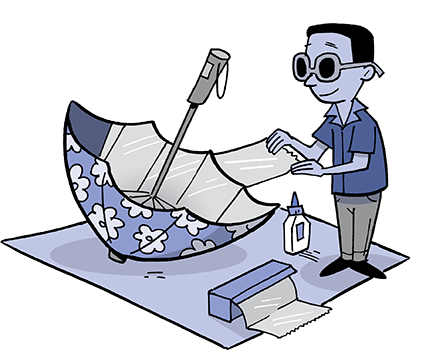
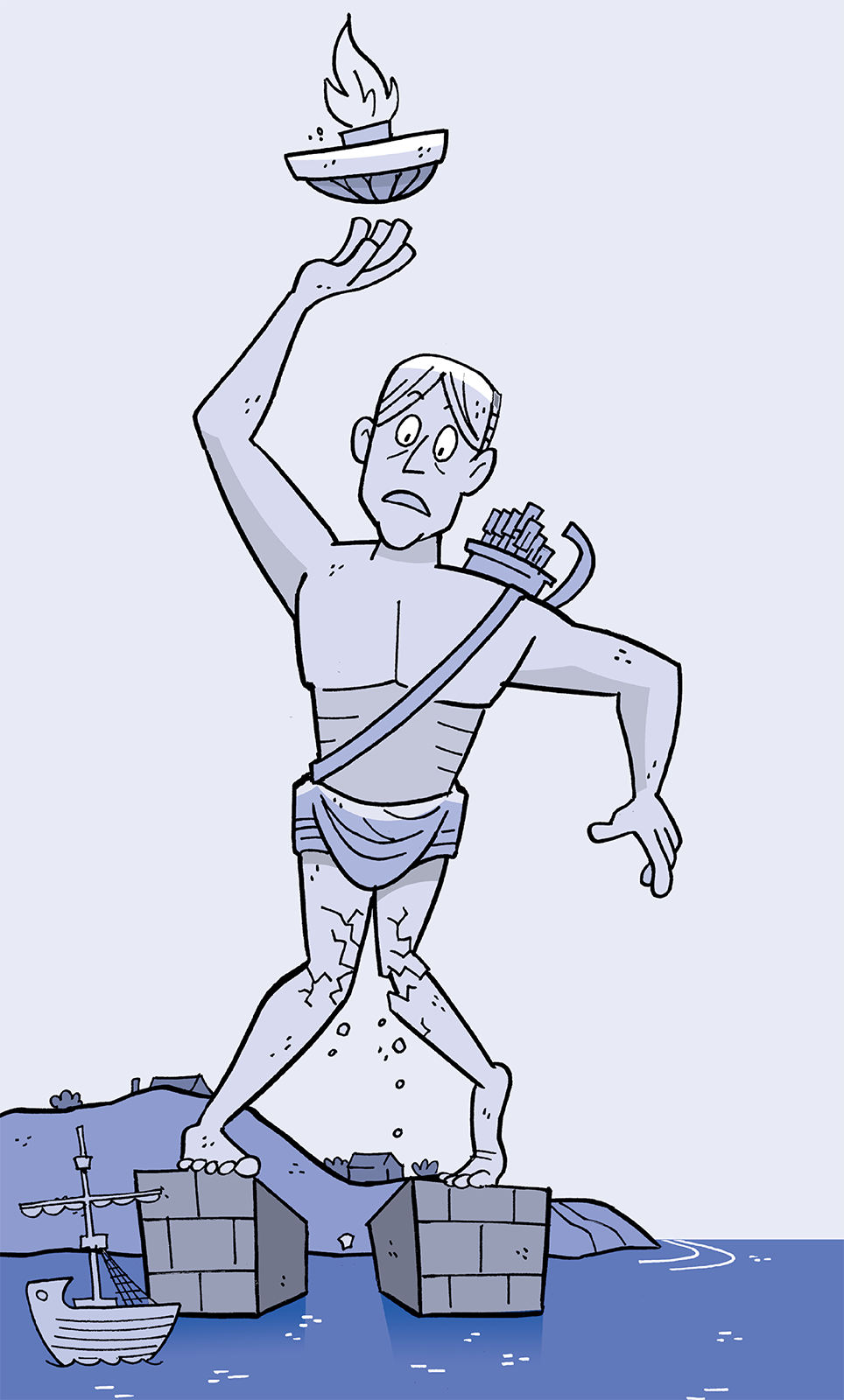
Chapter 1
226 BC
Rhodes, Greece
The Colossus of Rhodes
Y our pulse quickens as you stand on deck and see land, and then the outline of a city. That city, with its breathtaking skyscrapers, is already familiar to youeven though you have never been there. The soaring towers and concrete canyons are unmistakable: You are arriving in New York City. And any doubts you might have had are swept away as you pass the towering figure of a robed lady holding a torch aloft.
Next page

